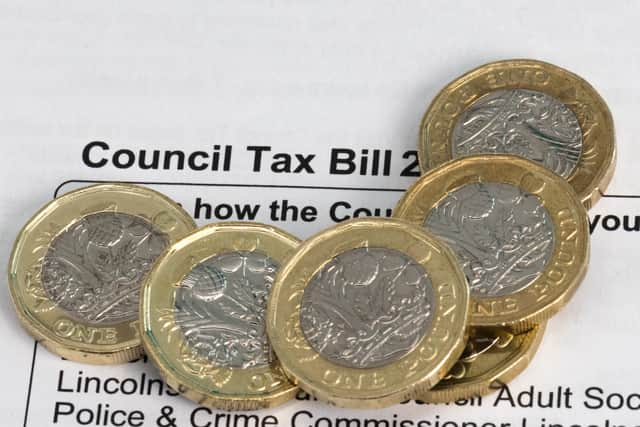'Maximum allowed' - Council tax will rise once again in Liverpool next year
and live on Freeview channel 276
Liverpool Council has confirmed it will have to raise council tax again next year. This year, it was raised by 4.99% - the highest amount possible without the need for a referendum.
The council hasn't ruled out another large hike in rates for residents come April 2024 and warned if council tax did not increase, it 'could lead to a reduction in essential services'.
Advertisement
Hide AdAdvertisement
Hide AdThe 'maximum allowed' is once again under consideration, which would mean a near 10% increase for residents in the last two years.
How much will I pay?
The average Liverpool house price in September 2023 was £186,730, according to the latest Land Registry data. That figure would place a resident in council tax band F - for homes valued over £160,000 and up to £320,000.
A further 4.99% increase on council tax would see people in that category paying around £4,037 per year for 2024/25, compared to £3,658.29 in 2022/2023. A hike of 378.71 over the past two years.
The current council tax bands for the city can be found on Liverpool.gov.uk
Why are the council planning an increase?
Advertisement
Hide AdAdvertisement
Hide AdAfter receiving a better than expected financial settlement last year, the local authority managed to set a budget that required just £49m in savings rather than the feared £73m. Additional funds will need to be found over the next two financial years.
As budget setting time nears closer, the authority has confirmed ratepayers will face an increase next year too but the level at which we all feel the pinch remains unknown.
In a spiky budget meeting in March this year, councillors set out a three year plan that would effectively save £85m from the Cunard over a three year period. This included making cuts to discretionary spending on areas such as the Liverpool Citizens Support Scheme (LCSS).
As part of a new dedicated page online, the local authority has outlined how it will approach the new financial year and savings required. It said: “In the current financial year, we have been progressing our Financial Improvement Plan, which has included establishing a new mechanism for financial management, making sure we live within our means.


Advertisement
Hide AdAdvertisement
Hide Ad“These include actions on debt write-off, improved income collection, capital programme development and a new reserves policy. There is no doubt that this remains a challenging time for Local Government, due to the volatility of the economy and inflation.”
Setting out its position, the council said a “large increase” in homelessness has been reported nationally and felt acutely within the city, putting pressure on the purse strings, as well as increased demand for social care. It added: “We are working extremely hard to manage this situation and mitigate the impact. Due to careful and detailed planning, our expectation is that we will be able to set a balanced budget in 2024/25.”
Owing to the vast amounts needed to be found, the council hasn’t ruled out another large hike in rates for residents come April and warned if council tax did not increase, it “could lead to a reduction in essential services.” It said: “The budget will also include a recommendation on an increase in Council Tax.
“We are having to consider raising it by the maximum allowed – 2.99 per cent in Council Tax, plus a further 2 per cent to help meet adult social care costs (4.99 per cent in total), as a contribution towards the overall cost of services. The government does assume councils will increase bills annually when it allocates the Local Government Finance Settlement.
“If there is no increase, that could lead to a reduction in essential services, which could particularly impact our most vulnerable residents.”
Comment Guidelines
National World encourages reader discussion on our stories. User feedback, insights and back-and-forth exchanges add a rich layer of context to reporting. Please review our Community Guidelines before commenting.